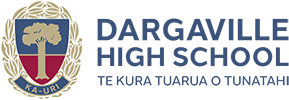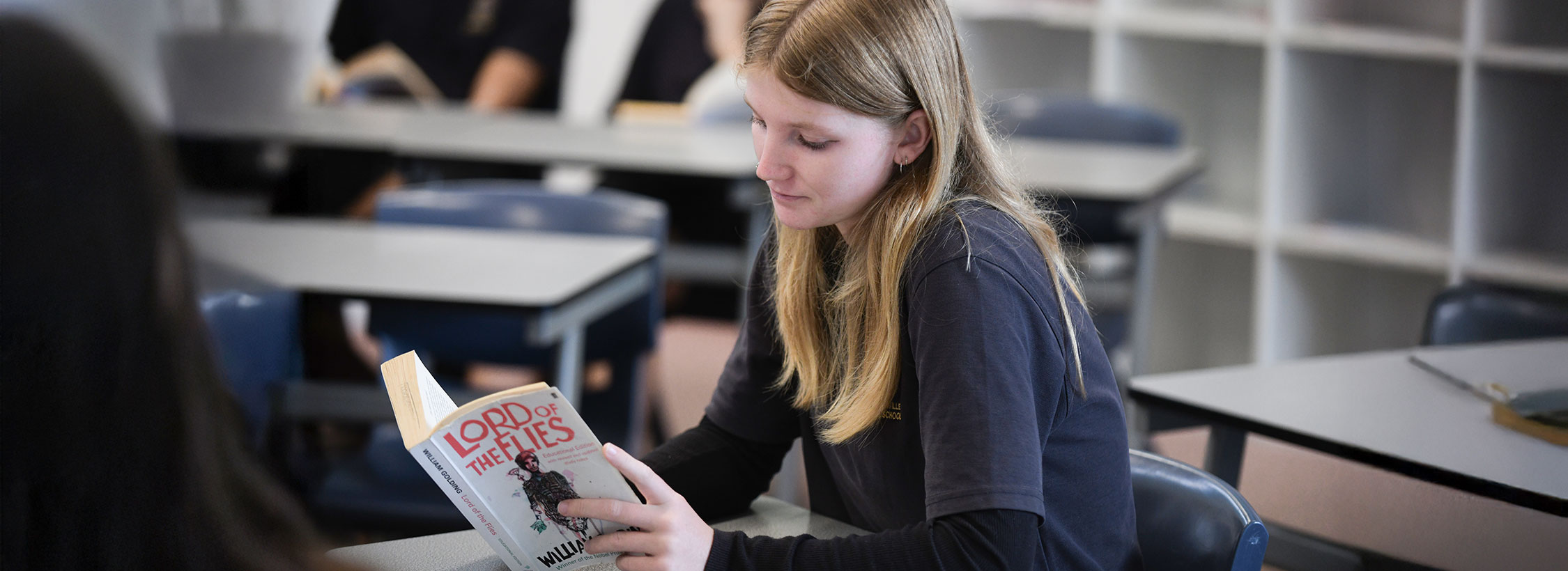Curriculum | Course Structure
Dargaville High School is required to implement its curriculum in accordance with the priorities set out in the National Education Goals and the National Administration Guidelines. The basic outlines of the New Zealand curriculum are identified in New Zealand Curriculum PDF downloads (7mb). The Ministry of Education site provides introductions to what students learn at school, and information about the New Zealand curriculum.
PB4L
Dargaville High School is involved with the PB4L (Positive Behaviour for Learning) initiative. Positive Behaviour for Learning (PB4L) provides programmes and initiatives for schools, teachers and parents across the country to turn around problem behaviour in children and young people and to encourage pro-social behaviour.
Refer to the Ministry of Education website for further information on positive behaviours for learning.
Literacy/Numeracy
Literacy/Numeracy
The Ministry of Education has Literacy and Numeracy requirements as part of NCEA.
Refer to: NCEA Literacy and Numeracy.
What Children Learn
Curriculum always involves choosing from alternatives and at Dargaville High School we have a number of subjects to choose from. In New Zealand, the national curriculum, devised by the New Zealand government, sets the direction for learning. Dargaville High School works with the New Zealand Curriculum and ensures that the school's flexibility to develop teaching and learning programs meets the diverse needs of our particular learners. Students need an up-to-date curriculum that reflects not only the knowledge needed for the future, but also the best teaching strategies and learning theories.
Study Courses
There is a varied selection of additional Study Courses students can select from. We operate a range of successful academies (Building, Hospitality, PITA and Services) as well as accessing FarNet and Te Kura courses. Talk to the Careers Advisor, to find out further information.
Year 9 Course Structure
Our Year 9 students will be part of an integrated learning structure where their core subjects are taught by the same teacher in a consistent classroom. They will have their Science lessons in the Science labs. Every term, they will try a different Option subject, from Drama, Visual Arts, Food and Nutrition, and Design and Materials Technology.
With the support of their Year 9 Dean and the consistency of one main teacher and learning environment, our Year 9 students experience an extended transition period to high school allowing them to gain confidence and develop self-efficacy.
All incoming Year 9 students will be tested using AsTTle. Students who need special assistance will either come out of the normal core subjects and undertake special programmes or have teacher/teacher aid assistance in their normal classes.
Starting School
All students starting the school will receive information about the different subjects the school offers in both its core and option subjects.
During term 4 students from the contributing primary and intermediate school will have the opportunity to visit the school during the day. Parents and caregivers are invited to discuss their child's enrolment at the school at a personal interview, which can take place at the contributing school or at the High School.
Year 10 Course Structure
Some subjects are offered as options in Year 10 in addition to a core programme based on English, Mathematics, Science, Social Studies and Physical Education. These include Digital Technology, Design and Materials Technology (DMT), Food and Nutrition, Visual Arts, Drama, Music Academy (entry by audition), Te Reo Māori, Enviro-Science, Digital Technology. These options are semester-based.
Year 10 students take two option subjects per semester. There are a few things we ask students to think about when making a decision...
- Do you enjoy the subject?
- Is it going to be important that you do this subject?
- Will you need to do this subject in Year 10 to carry on with it in Year 11?
It is also important that Year 10 make options as wide as possible to develop a wide range of knowledge and skills. Deans, Form Teachers and subject teachers can offer advice ensuring that Year 10 study a broad curriculum.
Year 11 Course Structure
Every year Dargaville High School has Hui Whānau (Parent-Teacher interviews) where pupils and parents or caregivers are invited to talk to teachers concerning courses, entry levels and future career paths. The programme of study in year 11 is NCEA Level 1 (National Certificate of Educational Achievement). NCEA Level 1 Certificate requirements:
- Usually achieved by Year 11 students.
- Students must achieve 80 credits.
- Of these 80 credits, 10 must be in literacy standards and 10 in numeracy standards.
- Students can gain their 80 credits in one year, or over two or more years.
- Credits may be gained from achievement standards or unit standards.
For further information, students and parents/caregivers should visit the NZQA Qualifications page. This website provides useful information explaining NCEA for both parents and students. The Senior School programme is focused on preparing students for qualifications that will take them beyond school.
Years 12 & 13 Course Structure
Students can select courses from Year 11, 12 and 13 for study in one particular year, and tailor the course to suit their needs.
In Year 12 students predominately study NCEA Level 2 and at Year 13 students predominately study NCEA Level 3. Dargaville High School requires students to study Level 2 English usually enabling them to gain the English requirements for University entrance.
You need 80 credits to achieve an NCEA certificate at each level: 60 credits at that level or above, plus 10 Literacy and 10 Numeracy credits.
For information on NCEA and required qualifications, visit the NZQA website. NZQA

